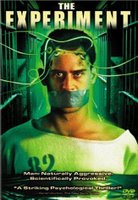a new watergate?
I was just reading in the Columbia Journalism Review about Deep Throat and the exposure of the Watergate scandal. At the time there was a divide—among politicians, the media, and probably the public, too—over whether the break-in at the Watergate building was something by a small group that had little do with the Nixon administration's policies, or whether it went all the way to the top and was a sign of deep corruption. Of course it soon became clear it went all the way up and went deep.
The same kinds of questions came up with the Abu Gharab prison torture scandals. The answer has generally been that it was just a few in the bottom ranks who were responsible, but I'm not convinced. The American public doesn't seem terribly concerned about this; in England, it's in the news more, despite their relatively smaller involvement in the war.
Now the Financial Times reports that the investigation into the leak of CIA agent Valerie Plame's name is likely to broaden to encompass the Bush administration's handling of pre-war intelligence about Iraq. I'm curious to see what comes of this.
The Daily Kos says the Washington Post's Walter Pincus is one of the only honorable journalists in covering this scandal (see Pincus's recent article on this).
Also see the New York Times's reporting on this and their reporter Judith Miller's explanation of her role in the case. Miller's work on weapons of mass destruction has long been suspect: she relied heavily on sources that said Saddam had the weapons. As she puts it:
UPDATE: I read the NY Times coverage of this scandal more closely and realized that although the report was surprisingly candid, they're being somewhat disingenuous about it. They report that a NY Times editorial said, "If Ms. Miller testifies, ti may be immeasurably harder in the future to persuade a frightened government employee to talk about malfeasance in high places."
They seem to be drawing a comparison with Watergate—but in the case of Plame, it seems that government officials were using the media to attack and discredit a critic of the Bush administration. I'm not the first to point this out, but I think this issue changes the rules for when a reporter should keep mum.
Ethically speaking, is the confidentiality between the reporter and source the most holy of covenants that any reporter should take to their grave? Or is there ever a case when a reporter should go against a source's wishes and testify.
In any case, this is not the dilemma Miller faced: her source never told her to keep quiet, and had actually signed a release that she did not accept. In some ways admire the Times's and Miller's stance, but it seems like in their narrow adherence to principle, they're ignoring the bigger issues of the relation between the media and the government.
The same kinds of questions came up with the Abu Gharab prison torture scandals. The answer has generally been that it was just a few in the bottom ranks who were responsible, but I'm not convinced. The American public doesn't seem terribly concerned about this; in England, it's in the news more, despite their relatively smaller involvement in the war.
Now the Financial Times reports that the investigation into the leak of CIA agent Valerie Plame's name is likely to broaden to encompass the Bush administration's handling of pre-war intelligence about Iraq. I'm curious to see what comes of this.
The Daily Kos says the Washington Post's Walter Pincus is one of the only honorable journalists in covering this scandal (see Pincus's recent article on this).
Also see the New York Times's reporting on this and their reporter Judith Miller's explanation of her role in the case. Miller's work on weapons of mass destruction has long been suspect: she relied heavily on sources that said Saddam had the weapons. As she puts it:
"W.M.D. - I got it totally wrong," she said. "The analysts, the experts and the journalists who covered them - we were all wrong. If your sources are wrong, you are wrong. I did the best job that I could."So the question is: should she have trusted these sources and uncritically repeated what they said?
UPDATE: I read the NY Times coverage of this scandal more closely and realized that although the report was surprisingly candid, they're being somewhat disingenuous about it. They report that a NY Times editorial said, "If Ms. Miller testifies, ti may be immeasurably harder in the future to persuade a frightened government employee to talk about malfeasance in high places."
They seem to be drawing a comparison with Watergate—but in the case of Plame, it seems that government officials were using the media to attack and discredit a critic of the Bush administration. I'm not the first to point this out, but I think this issue changes the rules for when a reporter should keep mum.
Ethically speaking, is the confidentiality between the reporter and source the most holy of covenants that any reporter should take to their grave? Or is there ever a case when a reporter should go against a source's wishes and testify.
In any case, this is not the dilemma Miller faced: her source never told her to keep quiet, and had actually signed a release that she did not accept. In some ways admire the Times's and Miller's stance, but it seems like in their narrow adherence to principle, they're ignoring the bigger issues of the relation between the media and the government.













0 Comments:
Post a Comment
<< Home